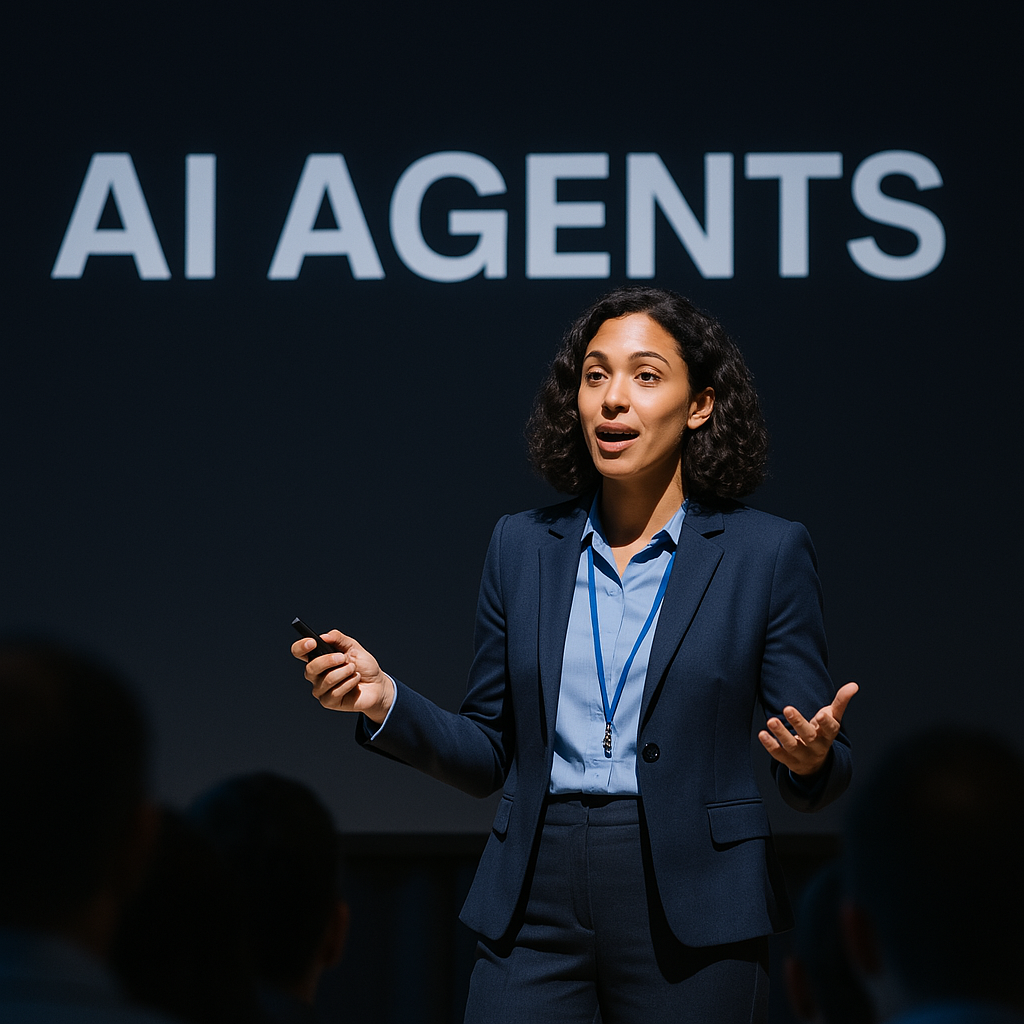
How AI Agents Are Transforming Course Creation: The One-Click Future of eLearning
It's no secret that Artificial Intelligence (AI) is quietly reshaping how we design, deliver and experience education. One of the most significant shifts lies in the emergence of AI agents, autonomous systems capable of streamlining and, in some cases, entirely automating the course creation process. These intelligent tools are reducing development time, enhancing personalisation, and making high-quality content accessible to more learners than ever before.
What Is an AI Agent? And How Do They Fit Into eLearning?
An AI agent is a type of software that can operate independently to perform specific tasks based on user prompts or learning objectives. In the world of eLearning, these agents can design full courses, generate content, create assessments, and even provide feedback, all without human intervention at every step.
Unlike traditional automation tools, AI agents in education are powered by machine learning and natural language processing. They can interpret instructional intent from just a line of text or a simple document and produce rich, interactive learning materials in minutes.
From Weeks to Minutes: The Speed of Course Creation
Perhaps the most transformative benefit of AI agents is the dramatic reduction in course development time. Where building an eLearning module might once have taken weeks or even months, AI agents are now able to produce structured, media-rich courses in a matter of minutes.
AI agents like Open eLMS AI are already making waves in this area. These tools can generate entire courses from a single sentence or a document upload, automatically incorporating multimedia elements such as voiceovers, imagery, and interactivity. It’s an approach that is proving particularly useful in fast-paced sectors like corporate training, compliance, and skills development.
A recent case study found that using this type of AI system reduced course production time by 89%, and more in some cases, with no dip in learner engagement or satisfaction. For learning designers and educators, this frees up time to focus on pedagogical refinement and learner support rather than administrative build.
Personalised Learning at Scale
AI agents don’t just speed up the process, they can personalise it too. By analysing user behaviour, learning styles, and performance data, these tools can adapt content on the fly to suit the individual needs of learners.
“AI is particularly effective at simplifying complex concepts,” says Dr Kevin Huang, an educational AI researcher. “We’ve seen students respond positively to AI-generated explanations, which break down subjects in an easily digestible way.”
Reports from the education technology sector suggest that adaptive learning powered by AI agents is significantly improving learner engagement and retention. This kind of personalisation used to be resource-intensive and only viable in small settings. Now, it's becoming scalable across entire organisations.
Can Learners Tell the Difference?
With this increase in automation, many wonder whether learners can distinguish between content written by humans and content generated by AI. According to a study from Penn State University, the answer is: not really. In experiments, learners correctly identified AI-written text just 53% of the time, barely above random guessing.
Other studies echo this. Research from the European Journal of Education found that learners often rated AI-generated summaries as clearer and more helpful than their human-written counterparts. AI agents tend to simplify content effectively, though some analysis suggests they occasionally lack the depth and nuance of human authorship.
Still, the line between human and machine-generated material is increasingly difficult to draw, something that will only continue as AI evolves.
Why Teachers Still Matter
Despite their capabilities, AI agents are not a substitute for teachers or subject matter experts. Human insight, creativity, and critical thinking remain essential in shaping meaningful educational experiences.
As John Warner, author and educator, notes: “True writing involves discovery, emotional expression, and original thinking, qualities that machines lack.” While AI can take on the heavy lifting of content generation, educators are still needed to bring context, nuance, and emotional intelligence to learning.
A Market on the Move
The appetite for AI in education is growing rapidly. According to HolonIQ, the AI in eLearning market is projected to grow from $4.4 billion in 2023 to $12.2 billion by 2033. Meanwhile, a Salesforce study revealed that 77% of students are open to using AI agents to support their learning, with nearly half saying they’re excited about the possibilities.
Platforms powered by AI agents, like Open eLMS AI, are contributing to this growth by making AI-driven course creation available to a broader audience, from universities to SMEs. These platforms are often no-code or low-code, meaning even non-technical users can build courses in a few clicks.
Final Thoughts
AI agents are rapidly moving from being a novelty to becoming a cornerstone of course creation in eLearning. They offer significant time savings, enable personalisation at scale, and support more inclusive and accessible content delivery.
The future of learning design may not be about choosing between human and AI authorship but instead finding the right balance, one where AI handles the mechanics, and educators focus on innovation, empathy, and deep learning outcomes.
As the technology matures, AI agents will likely become as fundamental to learning as word processors once were to writing. And just like that shift, those who embrace the tools early stand to benefit most.


